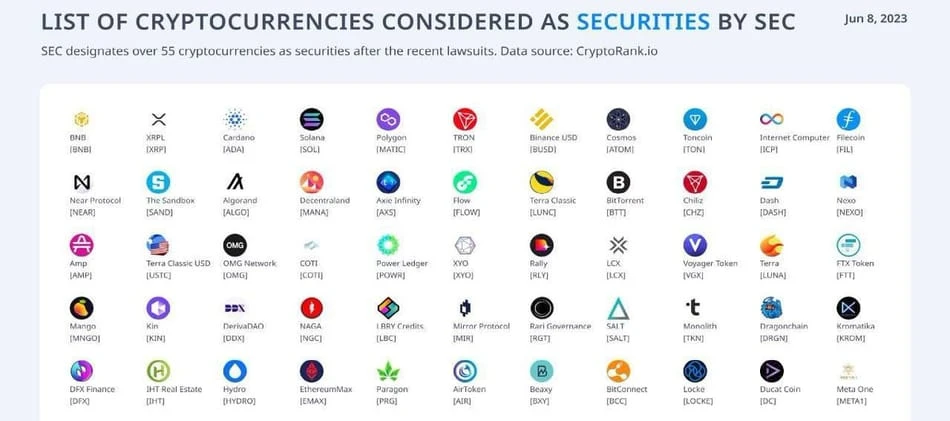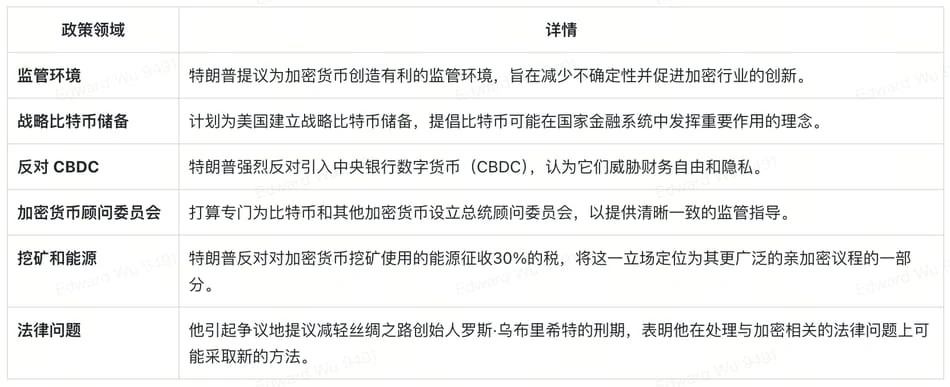Author of the original article: 0xEdwardyw
Introduction
The field of cryptocurrency exchange-traded funds (ETFs) in the United States has made significant progress in the past year, with spot Bitcoin and Ethereum ETFs being approved successively. Despite these developments, the possibility of recent approval for a spot Solana ETF by the U.S. Securities and Exchange Commission (SEC) remains uncertain, even though well-known asset management companies have recently submitted applications. This article explores the current status of the Solana ETF application, the regulatory environment, political influences, and the potential impact on the price of SOL if approved.
Current Status of Solana ETF Application
In June 2024, VanEck and 21Shares applied to the U.S. Securities and Exchange Commission (SEC) for approval to launch ETFs linked to Solana. These applications represent the first serious attempts to introduce Solana-based ETFs in the U.S. market. VanEck submitted the S-1 form on June 27, 2024, and 21Shares followed suit on June 28, 2024.
Timeline
Initial applications:
June 2024: VanEck applied to the U.S. Securities and Exchange Commission (SEC) for the first spot Solana ETF
July 2024: 21Shares subsequently submitted its own spot Solana ETF application
Review period:
- The SEC has a statutory deadline to review applications, which typically involves several rounds of feedback and modifications. This period can last up to 240 days from the initial application date.
Key dates and expectations:
- Mid-March 2025: It is expected that the SEC will make a decision on the spot Solana ETF application by this date
Regulatory Environment
The regulatory environment for U.S. cryptocurrency ETFs has been characterized by caution and rigorous scrutiny, especially from the U.S. Securities and Exchange Commission (SEC).
The SEC has historically been cautious about cryptocurrency ETFs. It took nearly a decade for the SEC to approve the first Bitcoin ETF, and the approval of an Ethereum ETF did not occur until May 2024.
Classification Issues
The major obstacle to the approval of a Solana ETF is primarily due to the SEC classifying SOL tokens as securities under specific circumstances. This classification introduces a series of regulatory complexities, which are more stringent than those governing commodities such as Bitcoin and Ethereum.

Source: CryptoRank
Regulatory framework: Securities are subject to a different set of rules than commodities. This includes more comprehensive compliance measures, which may pose a challenge for cryptocurrency projects.
Disclosure requirements: If SOL is classified as a security, Solana and related products would need to comply with stricter disclosure and reporting standards, increasing the regulatory burden on the Solana Foundation and any potential ETF issuers.
Legal ambiguity: The SEC's classification introduces uncertainty about Solana's legal status, which could hinder institutional investors and complicate the ETF approval process.
The Solana Foundation publicly opposes the SEC's classification of SOL as a security. They argue that SOL should not be considered a security, citing its use within the network for staking, transaction validation, and governance. However, the SEC's position is partly based on the token's marketing and the expectation of profit from the efforts of others, which is a standard used in the Howey Test to determine securities.
Evolving Political Environment
The process of approving a Solana spot ETF by the U.S. Securities and Exchange Commission (SEC) is closely related to the broader political environment in the United States. Political changes could significantly impact financial regulations, including those governing cryptocurrency assets.
Cryptocurrency has become a significant issue in U.S. politics, with both major parties showing varying degrees of support and opposition. Republican candidate and former President Donald Trump pledged to end the "war on cryptocurrency" as part of his campaign. At the 2024 Bitcoin conference in Nashville, Tennessee, Trump stated that the U.S. would become the "global capital of cryptocurrency." While the Democratic Party has long been seen as opposed to cryptocurrency, their views on cryptocurrency are beginning to change. On July 27, Democratic members of the U.S. House of Representatives signed a letter calling for a "forward-looking approach" to blockchain and digital assets.
Here is a summary of Donald Trump's current cryptocurrency policy and proposals in the 2024 presidential election:

The outcome of the 2024 presidential election could profoundly affect the way the SEC approves a Solana spot ETF. The victory of a pro-cryptocurrency candidate, such as Donald Trump, who openly supports and accepts cryptocurrency campaign donations, could create a more favorable regulatory environment for crypto assets.
Other Factors Affecting Approval
Lack of Futures Contracts
A key factor that facilitated the approval of spot Bitcoin and Ethereum ETFs is the existence of mature regulated futures markets for these cryptocurrencies. Futures contracts provide a regulated framework that helps mitigate some of the risks associated with spot market trading.
One major advantage of these futures markets is that they provide a regulated framework more acceptable to the U.S. Securities and Exchange Commission (SEC). Bitcoin futures were launched on the Chicago Mercantile Exchange (CME) in December 2017, followed by Ethereum futures in February 2021. This regulatory oversight helps ensure that trading activities comply with established standards, which is crucial for obtaining SEC approval for investment products.
In contrast, Solana currently lacks a similar futures framework. There are no Solana futures contracts trading on major regulated exchanges such as CME or Cboe. This absence limits the tools available for risk management and price discovery, leading to regulatory uncertainty.
Concerns about Solana's Stability
Concerns about Solana's stability have been a persistent issue since its inception. Solana has experienced multiple network outages, ranging from a few hours to over 18 hours, with the most recent major outage occurring on February 6, 2024, lasting nearly 5 hours. These frequent outages have raised significant questions about the network's reliability and robustness, which could affect regulatory agencies' (such as the SEC) views when considering the approval of ETFs and other financial products.
The instability of Solana is attributed to various factors, including high transaction loads overwhelming the network, network upgrades and software update issues, errors in the blockchain code, and difficulties in maintaining stability during major updates.
If Approved, How High Could SOL Rise?
Solana faces several obstacles in obtaining approval for a spot ETF, but if a pro-cryptocurrency candidate wins the U.S. presidential election in November, there is still a possibility of SEC approval next year. Analysts have outlined various scenarios, indicating the potential impact on the price of SOL if a Solana spot ETF is approved.
A report from GSR Markets suggests that the approval of a Solana spot ETF could drive the price of SOL to nearly nine times its current value. This estimate assumes that a Solana spot ETF will attract 14% of the investment flow since the launch of the Bitcoin spot ETF. In this "blue-sky scenario," the price of SOL could soar to over $1,320 from its current level, significantly increasing its market value to $614 billion. Even in a more conservative scenario, if the ETF attracts only 2% to 5% of the flow from the Bitcoin ETF, the price of SOL could still grow to 1.4 to 3.4 times its current value.
Conclusion
The road to SEC approval for a Solana ETF is fraught with challenges, including the lack of a regulated futures market and ongoing concerns about blockchain stability. The SEC has historically been cautious about cryptocurrency ETFs, and the classification of SOL as a security further complicates the approval process. However, changes in the political environment, especially the upcoming U.S. election, could create a more favorable regulatory environment. The likelihood of a more favorable regulatory environment will significantly increase if a pro-cryptocurrency president is elected. Such leadership changes could expedite the approval process for a Solana ETF.
免责声明:本文章仅代表作者个人观点,不代表本平台的立场和观点。本文章仅供信息分享,不构成对任何人的任何投资建议。用户与作者之间的任何争议,与本平台无关。如网页中刊载的文章或图片涉及侵权,请提供相关的权利证明和身份证明发送邮件到support@aicoin.com,本平台相关工作人员将会进行核查。



